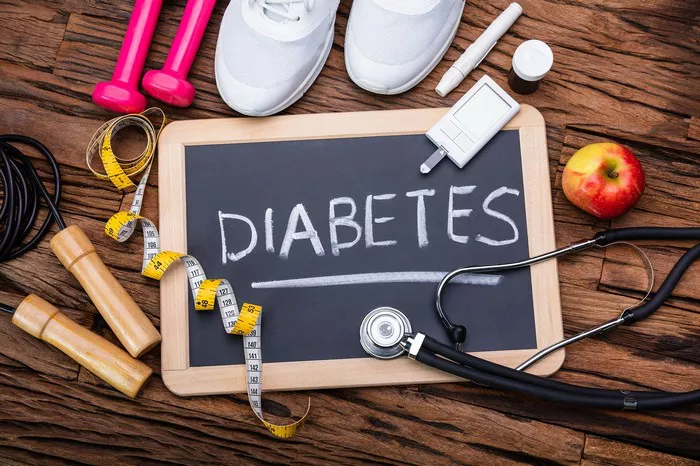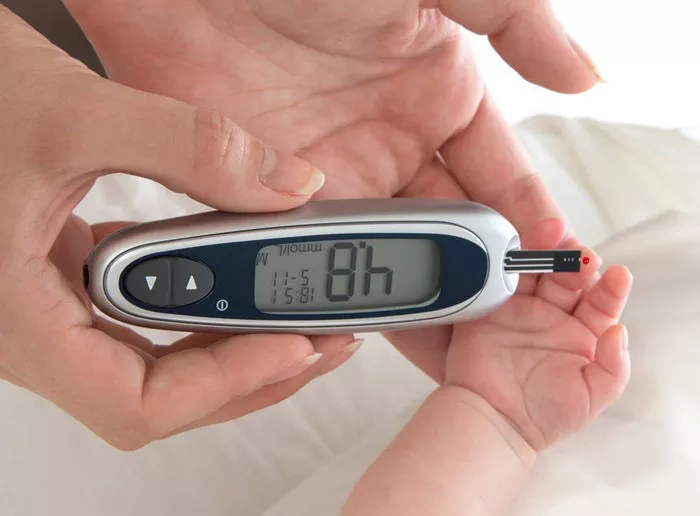Type 2 diabetes, characterized by insulin resistance and high blood sugar levels, affects millions of individuals worldwide. While classic symptoms like increased thirst, frequent urination, and fatigue are well-known indicators of the condition, there exists a spectrum of lesser-known or unusual symptoms that can also signal the presence of Type 2 diabetes.
Recognizing these atypical manifestations is crucial for early detection, diagnosis, and management of the disease.
In this comprehensive guide, we delve into the realm of unusual symptoms of Type 2 diabetes, shedding light on their significance, implications, and the importance of vigilance in identifying them.
Understanding Type 2 Diabetes
Type 2 diabetes is a metabolic disorder characterized by the body’s inability to effectively use insulin, leading to high blood sugar levels. Insulin resistance, where cells fail to respond adequately to insulin, is a hallmark feature of Type 2 diabetes.
Over time, the pancreas may struggle to produce enough insulin to overcome this resistance, resulting in elevated blood glucose levels. While genetics and lifestyle factors play significant roles in the development of Type 2 diabetes, the condition is often preceded by prediabetes, a state of impaired glucose tolerance.
Classic Symptoms of Type 2 Diabetes
Before delving into the unusual symptoms of Type 2 diabetes, let’s briefly review the classic symptoms commonly associated with the condition:
1. Polyuria: Excessive urination, often occurring at night.
2. Polydipsia: Increased thirst, leading to frequent consumption of fluids.
3. Polyphagia: Heightened hunger and increased food intake.
4. Fatigue: Persistent tiredness or lack of energy.
5. Weight Loss (Unintentional): Despite increased appetite and food intake, some individuals with Type 2 diabetes may experience unexplained weight loss.
While these classic symptoms are well-recognized and commonly observed, there are several unusual symptoms of Type 2 diabetes that may not be as readily apparent but warrant attention nonetheless.
Unusual Symptoms of Type 2 Diabetes
1. Skin Changes:
Diabetes can affect the skin in various ways, leading to unusual symptoms such as darkened skin patches, particularly in areas of skin folds or creases.
This condition, known as acanthosis nigricans, is often indicative of insulin resistance and may manifest as velvety, darkened patches on the neck, armpits, or groin.
2. Yeast Infections:
High blood sugar levels create an environment conducive to yeast overgrowth, leading to recurrent or persistent yeast infections in various parts of the body, such as the mouth (oral thrush), genitals (vaginal yeast infections), or skin folds.
Individuals experiencing frequent yeast infections, especially if unresponsive to treatment, should consider diabetes screening.
3. Blurry Vision:
Fluctuations in blood sugar levels can affect the fluid balance in the eyes, leading to temporary changes in vision. Blurry vision, difficulty focusing, or fluctuations in visual acuity may occur as a result of high blood sugar levels. While these symptoms are usually transient, they may serve as early warning signs of undiagnosed diabetes.
4. Slow Wound Healing:
Impaired blood flow and reduced immune function associated with diabetes can impair the body’s ability to heal wounds efficiently.
Individuals with Type 2 diabetes may notice that cuts, bruises, or sores take longer to heal than usual, increasing the risk of complications such as infections or ulcers.
5. Tingling or Numbness:
Peripheral neuropathy, a common complication of diabetes, can cause tingling, numbness, or a pins-and-needles sensation in the hands, feet, or legs.
This condition, known as diabetic neuropathy, occurs due to nerve damage resulting from prolonged exposure to high blood sugar levels.
6. Digestive Issues:
Diabetes can affect gastrointestinal function, leading to symptoms such as bloating, nausea, constipation, or diarrhea.
Gastroparesis, a condition characterized by delayed stomach emptying, may occur in individuals with longstanding diabetes and can manifest as persistent nausea, vomiting, or early satiety.
7. Frequent Infections:
Individuals with Type 2 diabetes may be more susceptible to bacterial or fungal infections, including urinary tract infections (UTIs), skin infections, or respiratory infections.
High blood sugar levels compromise immune function, making it harder for the body to fight off pathogens effectively.
8. Changes in Mental Health:
Diabetes can impact mental health and emotional well-being, leading to symptoms such as irritability, mood swings, anxiety, or depression. Fluctuations in blood sugar levels can affect neurotransmitter function and contribute to changes in mood or cognition.
Recognizing and Responding to Unusual Symptoms
Identifying and addressing unusual symptoms of Type 2 diabetes promptly is crucial for preventing complications and optimizing health outcomes. If you experience any of the aforementioned unusual symptoms, consider the following steps:
1. Consult a Healthcare Professional:
If you experience unusual symptoms that persist or worsen over time, consult your healthcare provider for a comprehensive evaluation. Your doctor can perform diagnostic tests, such as blood glucose testing or hemoglobin A1c measurement, to assess your risk of Type 2 diabetes.
2. Monitor Blood Sugar Levels:
Individuals with diabetes or those at risk of developing the condition should monitor their blood sugar levels regularly using a glucometer or continuous glucose monitoring system. Tracking blood sugar levels can provide valuable insights into the effectiveness of diabetes management strategies and help identify trends or patterns.
3. Implement Lifestyle Modifications:
Adopting healthy lifestyle habits, such as following a balanced diet, engaging in regular physical activity, managing stress, and getting adequate sleep, can help prevent or manage Type 2 diabetes and its associated complications. Work with your healthcare team to develop a personalized diabetes management plan tailored to your needs and preferences.
4. Medication Management:
In some cases, individuals with Type 2 diabetes may require medication or insulin therapy to achieve and maintain optimal blood sugar control. Your healthcare provider can prescribe appropriate medications and monitor your response to treatment to ensure safe and effective management of the condition.
5. Regular Follow-Up:
Stay engaged in your diabetes care by attending regular follow-up appointments with your healthcare provider. These appointments allow for ongoing monitoring of your diabetes status, adjustment of treatment plans as needed, and education about self-management strategies.
Conclusion
In conclusion, while classic symptoms like increased thirst, frequent urination, and fatigue are hallmark indicators of Type 2 diabetes, there exists a spectrum of unusual symptoms that may also signal the presence of the condition.
Recognizing and responding to these atypical manifestations is crucial for early detection, diagnosis, and management of Type 2 diabetes.
By remaining vigilant, seeking timely medical evaluation, and adopting healthy lifestyle habits, individuals can take proactive steps to mitigate the risks associated with Type 2 diabetes and optimize their overall health and well-being.



























